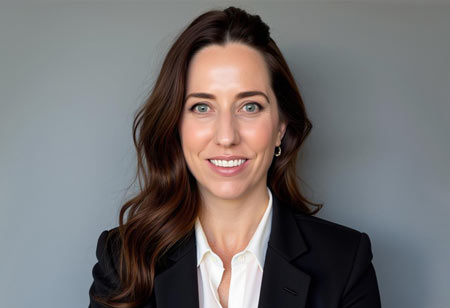THANK YOU FOR SUBSCRIBING
By Dominique Mitial, VP of Food Safety, Quality & Regulatory Affairs, Goldbergs Group
Navigating Food Sustainability: Our Collective...
By Erin Chua, Global Sustainability Manager at Dole Sunshine Company
5 Essential Ways to Integrate Sustainability into a...

Ensure That Palm Oil Products Are Environmentally Friendly and Sustainable
Antoni Simamora, Environmental & Sustainability Senior Asst. Manager, First Resources Ltd.

 Antoni Simamora, Environmental & Sustainability Senior Asst. Manager, First Resources Ltd.
Antoni Simamora, Environmental & Sustainability Senior Asst. Manager, First Resources Ltd.The product from palm oil that is most widely produced and consumed by society in general is palm oil. Palm oil is a derivative of the palm oil factory processing process, which produces crude palm oil (CPO). Palm oil is deeply embedded in the daily lives of people throughout the world with various uses such as for food as cooking oil, jam, and margarine, and for cosmetics such as shampoo, lipstick, soap and others. All of these products are products that almost all people in the world use.
When discussing palm oil products, we must fully understand that the products used are environmentally friendly and sustainable. The basic things in ensuring environmentally friendly and sustainable products are: First, companies producing palm oil products have complete permits from upstream to downstream. Second, producers must ensure that their products do not come from protected forest areas and are stolen.
Third, palm oil product producers strive to increase customer confidence in product quality through sustainable certification schemes with international standards such as the Roundtable Sustainable Palm Oil (RSPO) or national standards such as Indonesian Sustainable Palm Oil (ISPO).Fourth, this company must really pay attention to the welfare of workers in the company and the social welfare of the community around the company's location to avoid conflicts over the company's presence in the surrounding community. Lastly, comprehensive environmental management with good and complete management of liquid waste and hazardous waste produced, avoiding water and air pollution and maintaining conservation areas and biodiversity.
‘Everyone can be a part of maintaining environmentally friendly and sustainable palm oil products by using certified products and ensuring the producer is a trusted company.’
In Indonesia, one of the standards that is currently mandatory or mandatory for palm oil companies to comply with is the ISPO certification scheme.
Indonesian Sustainable Palm Oil has seven principles to adhere to, including compliance with legislation, Implementation of good plantation practices, management of the environment, natural resources and biodiversity, responsibility for labor, social responsibility and community economic empowerment, implementation transparency and continuous business improvement. Compliance with this principle really guides every element to always pay attention to the 3Ps, namely people, planet and profit.
From every existing regulatory compliance provision and standard, it can be ensured that the products produced by palm oil producing companies can be environmentally friendly palm oil products that adhere to sustainable principles if implemented well and will be very easily accepted both in local and foreign distribution countries. Thus, the trust of the industry that uses palm oil products and the public will be high in producing companies.
Everyone can be a part of maintaining environmentally friendly and sustainable palm oil products by using certified products and ensuring the producer is a trusted company.
Read Also














